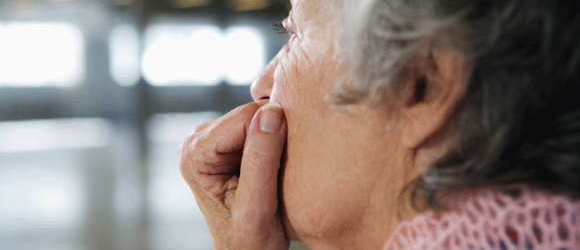
11 Tips to Treat Winter Blahs in the Elderly
Holidays are a busy and happy time with family and friends-- giving and receiving gifts, enjoying frequent visits and a keeping a faster holiday pace. But the flip side is that it ends, and this change often brings the January or winter “blahs.” Seniors especially, may experience sad feelings after the holidays. If these feelings are severe and untreated could possibly lead to depression. It’s important to keep an eye on the emotional state of the older people in your life, as they themselves may not even realize they have become 'blue.'
Factors that contribute to post--holiday sadness
• fatigue/exhaustion from the holiday hustle and bustle
• loneliness from a decreased number of visitors
• financial stress from overspending
• the consequences from different eating habits, often too much sugar
• more time to think of the loved ones no longer present at holiday time
• long, dark, cold days
• decreased time out of home because of bad weather (ice, snow)
Symptoms
• increased irritability
• more anxiety
• withdrawn--not as talkative or sociable (may not return phone calls)
• decreased interest in personal hygiene or keeping their home clean
• less involvement in extracurricular activities
• insomnia
• decreased appetite
• lack of energy
• longer hours in bed
How to help
1. Bring out the family pictures and encourage your elder to enjoy them, organize them, and possibly annotate events.
2. Seek medical advice. Elders may benefit significantly from antidepressants and/or other forms of therapy.
3. Get seniors who feel lonely and isolated out of the house. Socializing with others with decrease these feelings.
4. Adequate light is important so light therapy is a possibility.
5. Exercise, at whatever level the elder is able, is essential.
6. Brighten up the senior's environment with flowers, cards…
7. Encourage time spent on reading, sudoku, cards with friends and other activities that engage the brain.
8. Encourage healthy eating--too many carbs and extra pounds lead to increased sluggishness and decreased activity. As well too much caffeine can lead to jitters and mood swings.
9. If possible, incorporate Skype or FaceTime into the senior's repertoire to help them keep up their social contacts, especially with friends and relatives that live far away. If this is not possible, make sure that your elder has easy access to a phone and a phone card if needed.
10. Try to have events on the calendar such as future visits or meals out so the elder has things to look forward to.
11. It is never too late for your senior to try something new. Arrange for a class teaching a new craft, music appreciation or IT skills. If mobility is an issue, the internet can provide this opportunity.
The winter blues are common feelings experienced by young and old alike. We often don't recognize it in ourselves, and in our busy lives, don't notice the symptoms in our seniors. Be vigilant. The "blues' can develop into depression, a much more serious situation. The suggestions listed above can make all the difference until we see the tulips again.
